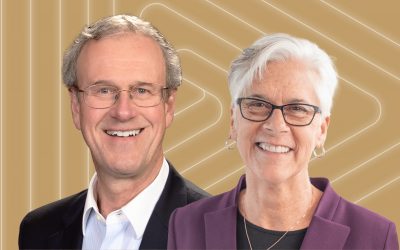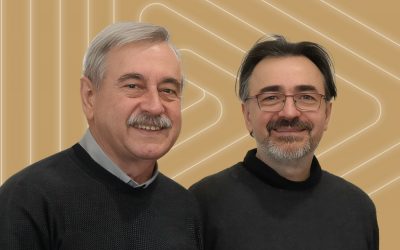Written by: Sara Johnson, Jim Funk, Lawrence Chong
Today, a leader deals with far more information and decisions in an hour than a leader 25 years ago. Thanks to technology, we have more resources to do things with immediacy but not enough time to process the implications. This access to computing power at a time of complex challenges disrupts the dynamics between a leader and followers. This disruption requires leaders to become more focused on facilitation and collaboration. As The Economist magazine proclaimed recently: “The modern boss is a cheerleader, not a sergeant-major.”
While the world has changed, many leadership development methods have yet to keep pace. Leadership theories have been around for many years and are often based on societal norms and the evolution of how people prefer to work. As discussed in a previous article, we have had the Great Man Theory, Trait Theory, Contemporary Theories, Contingency Theories, and more. The most recent theory being studied is Shock Leadership Theory. This latest theory is based on the leadership behaviors necessary to lead during the pandemic and other volatile, uncertain, chaotic, ambiguous situations — known as VUCA situations — we may face as leaders.
About a year ago, as Covid-19 raged on, a few of us decided that it was time to work on a change in approach to leadership development. We embarked on a creative process to rethink and co-create a new way of leadership development that is not only about leadership skills, but about the formation of the leader’s personal qualities and values as well as skills and competencies. We sought to discover ways to help leaders behave differently under immense pressure — how to be more empathetic, how to be more authentic, and how to lead with courage in an operating environment that has changed.
Ours is an unusual partnership. Indiana University’s Executive Education at the O’Neill School of Public and Environmental Affairs is a large executive education institute from the U.S., and Consulus is a global innovation firm headquartered in Singapore specializing in implementing business and organizational model transformation. But we serve the same profile of high-pressured, globally based leaders who must respond quickly, deal with complexity and lead with compassion. Aided by technology, we collaborated to blend our varied views of the world, our values, and more than 20 years of data and experience serving alongside leaders expected to deliver significant and challenging outcomes every day.
Through this experience, we concluded that, especially with technology, a leader’s heart and spirit must be known to others. We also concluded that, at a time flush with instantaneous information, a deliberate ability to make sense of the information will guide good decision-making. And, even though people may be with you virtually, they may be miles apart in reality. Having the ability to connect with someone has a significant effect in any setting – whether virtual or in person. Finally, a great leader is someone great at leading and executing in a complex operational environment. In the end results must be achieved, goals must be met. What can make the difference is how the leader engages and enables his/her teams, treats them with person-centered values, purpose-driven methods, and critical thinking that considers diverse points of view.
We are excited to share this 8-part formative experience with you to explore the heart and spirit of a leader, that capacity for embracive thinking, the sensitivity to relate and connect before serving, and facilitating operational success. We call this the HERO model for Holistic Leadership. Delivered through a blended use of live engagements, community building, practical tools for leading, and technology, it takes about 2 hours of your time each month. We know transformational and agile leaders are necessary for today’s unpredictable environment. To respond to this critical need, we have worked to ensure our global series will allow participants to interact with and learn from leaders from around the world. Participants who complete the program will earn a certificate from IU Executive Education at the O’Neill School and Consulus. To find out more about the Holistic Leadership for a Complex World program click here or to register, visit the IU Executive Education website.
Sara Johnson, MHA, FACHE
Sara is Clinical Assistant Professor for the Paul H. O’Neill School of Public and Environmental Affairs and Director of IU Executive Education. Professor Johnson teaches Graduate and Executive Education courses.
Jim Funk, M.S., SPHR, SHRM-SCP
Jim serves as the Global Head for leadership transformation work globally for Consulus and faculty for IU Executive Education. He is a recognized expert in the development of leaders at all levels, and in the strengthening and transforming of individual leaders and leadership teams to be at their best.
Lawrence Chong
Lawrence serves as Group CEO of Consulus. With experience working with foundations, conglomerates, governments, social enterprises, SMEs, and startups, he brings systemic solutions with cultural sensitivity and creative thinking. Lawrence is a featured speaker at global events such as Innovation by Design. He has spoken to more than 20,000 people in over 30 countries on how leaders can innovate through unity and shape the world.




